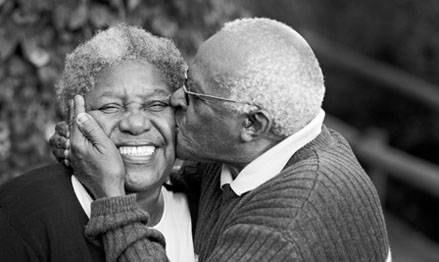Latest News Archive
Please select Category, Year, and then Month to display items
12 October 2020
|
Story Arina Engelbrecht
|
Photo Supplied
 Arina Engelbrecht from Organisational Development and Employee Well-being believes physical activity has a number of benefits for one’s health, including stress relief.
Arina Engelbrecht from Organisational Development and Employee Well-being believes physical activity has a number of benefits for one’s health, including stress relief.
Being physically active plays a big role in preventing the development of mental-health problems and in improving the quality of life of people experiencing mental-health problems.
Treatment for depression
Physical activity can be an alternative treatment for depression. It can be used as a stand-alone treatment or in combination with medication and/or psychological therapy. It promotes all kinds of changes in the brain, including neural growth, reduced inflammation, and new activity patterns are formed that promote feelings of calm and well-being. It releases endorphins – powerful chemicals in the brain that energise your spirit and make you feel good.
Physical activity can be very effective in relieving stress. Research in adults has found that physically active individuals tend to have lower stress levels compared to individuals who are less active. It also leads to improved sleep. When a person sleeps better and feels more rested, overall quality of life improves. They cope better with daily life stressors.
Reduce Alzheimer's risk
Regular physical activity can reduce your risk of developing Alzheimer's disease by up to 50%. It can also slow down further deterioration in those who have already started to develop cognitive problems. It stimulates the brain’s ability to maintain old connections as well as to make new ones.
A study asked people to rate their mood immediately after periods of physical activity (e.g. going for a walk/run, cycling, doing housework) and periods of inactivity (e.g. reading a book or watching television). Researchers found that participants felt more content, more awake, and calmer after being physically active compared to after periods of inactivity.
In conclusion, people who are physically active feel a sense of well-being, feel more energetic throughout the day, sleep better at night, have sharper memories, and feel more relaxed and positive about themselves and their lives.
“Being physically active not only changes your body, it changes your mind,
attitude, and your mood.” – Arina Engelbrecht
Esteemed Tutu family honorary guests at first intercontinental symposium
2013-10-08
|
 |
|
08 October 2013
Photo: Karina Turok |
The University of the Free State (UFS) will be hosting a visit by Archbishop Desmond Tutu and Mrs Leah Tutu. The occasion is to launch the Annual Intercontinental Leah Tutu Symposium on rape and violence against women in honour of Mrs Tutu, who has been an outspoken advocate of women’s rights and the sanctity of family life.
The Inaugural Intercontinental Leah Tutu Symposium will take place on:
Thursday 17 October 2013
12:00-14:00
Scaena Theatre
The launch of the Annual Intercontinental Leah Tutu Symposium is organised by Profs Pumla Gobodo-Madikizela (who hosts the Dialogue between Science and Society lecture series) and Heidi Hudson (Director of the Centre for Africa Studies). The Inaugural Intercontinental Leah Tutu Symposium will feature gender and policy analyst Nomboniso Gasa as keynote speaker and Sheila Meintjes, Wits University professor with expertise in gender politics, violence and conflict transformation. The event will also feature voices of survivors of rape and sexual violence, including Johannesburg businesswoman and social entrepreneur, Andy Kawa, who is a survivor of rape and started the organisation Enuf is Enuf to campaign for an end to rape and sexual violence.
On Mrs Tutu’s 80th birthday, during the family’s visit to the UFS, Archbishop Desmond Tutu will also be in conversation with the Vice-Chancellor and Rector, Prof Jonathan Jansen, at a public event: Celebration of a partnership: Archbishop Tutu pays tribute to his wife, on the topic: Man to Man: The Meaning of Leah in My Life.
Thursday 17 October 2013
16:30-18:00
Centenary Complex
The public event is part of the Dialogue between Science and Society lecture series, in collaboration with Mrs Grace Jansen and the Tutu Legacy Foundation.
Please RSVP to Anja Pienaar at pienaaran@ufs.ac.za or +27(0)51 401 7330 or Jo-Anne Naidoo at naidooja@ufs.ac.za or +27(0)51 401 7160.
Two of their daughters, Rev Mpho Tutu and Dr Thandeka Tutu-Gxashe, will accompany Archbishop Desmond and Mrs Leah Tutu.
Short Bio of Mrs Leah Tutu
Nomalizo Leah Tutu is an outspoken advocate for the rights of women and the sanctity of family life. She was awarded an Honorary Doctorate in 2000 by the National Louis University in Atlanta for her commitment to human rights and support of her husband’s work. She is patron of the Phelophepa Train, a health project that brings medical care to people living in remote areas of South Africa. She is also a patron of the Tshwaranang Centre that provides legal advocacy to end violence against women. With Archbishop Tutu, Mrs Tutu is a patron of the Tygerberg Children’s Hospital in Cape Town. She, Archbishop Tutu, and family established the Desmond and Leah Tutu Legacy Foundation in 2012.